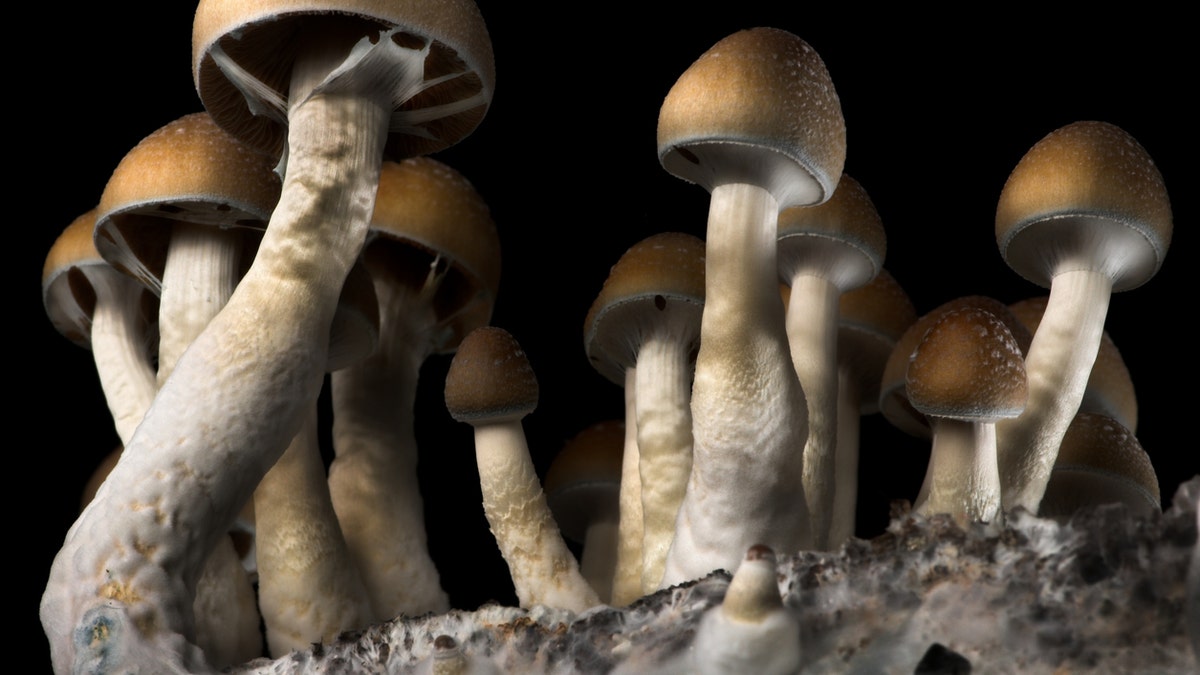
Brain-scan data from the new research suggests that psilocybin does impact brain networks that are associated with depression. (iStock)
Psilocybin, the main ingredient in "magic mushrooms," may soothe symptoms of depression, according to a very preliminary study.
The research had a small sample size — only 20 patients — and no control group who got a placebo for comparison's sake. That makes it hard to draw firm conclusions about if or how well the hallucinogenic compound really works at fighting depression. But brain-scan data from the new research suggests that psilocybin does impact brain networks that are associated with depression.
"Larger studies are needed to see if this positive effect can be reproduced in more patients," study author David Nutt, a professor of psychopharmacology at Imperial College London, said in a statement. "But these initial findings are exciting and provide another treatment avenue to explore."
Stubborn depression
The researchers focused on 20 people who had tried standard depression treatments and found them lacking. Each participant, classified as having treatment-resistant depression, took a 10-milligram dose of psilocybin, followed by another 25 milligrams one week later. Before treatment and the day after the second dose, the participants underwent brain scans to measure changes in blood flow and connections between brain regions. Nineteen out of the 20 patients made it through the whole study.
The immediately striking finding was that taking psilocybin, which occurs naturally in hundreds of mushroom species, decreased depression symptoms significantly. Scores on the Quick Inventory of Depressive Symptomatology, a commonly used depression-screening measure, dropped by an average of about 10 points out of 27 a day after the second dose. All patients showed at least some decline in their symptoms, the researchers reported Oct. 13 in the journal Scientific Reports, and 12 experienced at least a 50 percent decline. Participants also completed the depression survey five weeks after taking the psilocybin.
Some scientists have suggested a honeymoon-like period in the days following a psychedelic experience, the researchers noted in their paper. To see if there were any brain changes linked to the associated mood improvements and stress relief (often called an afterglow), the researchers scanned the participants' brains a day after the doses were given, they wrote.
The brain-scan data showed reduced blood flow to the left amygdala, an almond-size region tucked deep in the brain that handles emotion and fear. The researchers also saw increased chatter in the default-mode network — a network of brain areas most active when people are daydreaming or thinking about things without doing any particular task. In electroconvulsive therapy, in which electric current is run through the brain as a depression treatment, the default-mode network rapidly becomes less functional and then recovers beyond its baseline condition, Nutt and his colleagues wrote. Something similar might be at play with psilocybin, which may initially disrupt and then "reset" this network, giving the brain a fresh start that correlates with fewer depression symptoms five weeks after treatment.
New form of treatment?
"Based on what we know from various brain-imaging studies with psychedelics, as well as taking heed of what people say about their experiences, it may be that psychedelics do indeed 'reset' the brain networks associated with depression, effectively enabling them to be lifted from the depressed state," study leader Robin Carhart-Harris, the head of psychedelic research at Imperial College, said in a statement.
But the treatment isn't yet ready for prime time. Without a control group, the researchers can't be sure that the patients weren't just experiencing a placebo effect. Instead, they wrote, the study should be seen as a first step toward exploring psychedelic drugs as a treatment for depression. More work is also needed to examine any interactions between psilocybin and other factors in treatment, such as therapeutic support, they wrote.
Nevertheless, this is not the first study to suggest that there are some benefits from psilocybin for people with depression. In 2011, a similarly small study found that a year after taking psilocybin, participants reported higher life satisfaction and well-being, as well as increased spirituality and improved familial relationships. Psilocybin seems to prompt a sense of connectedness and meaning, which could be a mental health boon, those researchers told Live Science at the time.
Also in 2011, researchers reported that a psilocybin experience made people more open to new experiences for at least a year after the fact — a basic personality change that is rare to see in psychology. Psilocybin has also been shown to help people shake off feelings of rejection.
However, the hallucinogen can also have dangerous side effects. A 2017 study conducted by Johns Hopkins University found that of more than 2,000 people who'd had a "bad trip" on psilocybin, 10 percent felt they'd been a danger to themselves or others during their episode.
"Considering both the negative effects and the positive outcomes that respondents sometimes reported, the survey results confirm our view that neither users nor researchers can be cavalier about the risks associated with psilocybin," Roland Griffiths, a psychopharmacologist at Johns Hopkins University's School of Medicine, said in a statement about that research.
Original article on Live Science.







































